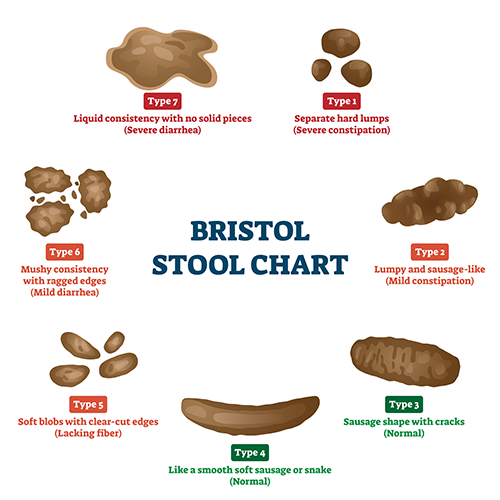Learn about the relationship between bowel movements and weight loss. Understand what changes to expect in your poop as you lose weight and how it affects your health.
In the pursuit of weight loss, many individuals often overlook the impact that their bodily functions can have on their journey. Specifically, the appearance of one’s poop can provide valuable insights into their progress. This article explores the relationship between bowel movements and weight loss, shedding light on what you can expect to see in the toilet as you embark on your weight loss journey. By understanding the changes in your poop, you will be better equipped to assess your progress and make informed decisions about your health.

Understanding Bowel Movements
Bowel movements are an essential part of our digestive system. They are the body’s way of eliminating waste and toxins from the body. A normal bowel movement is characterized by adequate frequency, consistency, color, and volume. However, when you embark on a weight loss journey, it is not uncommon for your bowel movements to undergo some changes. This article aims to explore the various aspects of bowel movements during weight loss, including their consistency, color, volume, frequency, smell, shape, and any potential presence of blood or mucus. Additionally, we will delve into the role of fiber intake, the impact of dehydration on stool, and the connection between gastrointestinal disorders and bowel movements.
Consistency and Color Changes
During weight loss, you may notice changes in the consistency and color of your stool. These changes can be attributed to various factors. In terms of consistency, it is normal for your stool to become looser or even softer when losing weight. This is often a result of increased water intake, dietary changes, and the acceleration of your digestive system. However, if you experience severe diarrhea or any signs of dehydration, it is important to seek medical attention.
Color changes in stool can also occur during weight loss. While the range of normal stool colors can vary, a sudden and significant alteration in color might indicate an underlying issue. For instance, if your stool becomes pale, clay-like, or light yellow in color, it could indicate problems with your liver or gallbladder. On the other hand, black, tarry stool may suggest internal bleeding in the upper gastrointestinal tract. If you notice any abnormal or persistent changes in stool color, it is crucial to consult with a healthcare professional for a proper evaluation.

Detecting Changes in Volume
The volume of stool may also undergo changes during weight loss. Some individuals may experience a decrease in stool volume, while others may notice an increase. If you observe a decrease in stool volume, this could be due to a reduction in food intake and the overall amount of waste being produced. However, it is important to note that a significant drop in stool volume accompanied by symptoms such as abdominal pain, constipation, or blood in the stool may be cause for concern and should be evaluated by a medical professional.
On the other hand, an increase in stool volume during weight loss is often attributed to dietary changes, especially an increase in fiber intake. Consuming fiber-rich foods, such as fruits, vegetables, and whole grains, promotes bowel movement regularity and adds bulk to the stool. This can result in larger, more bulky stools. While an increase in stool volume is generally considered normal and healthy, if you experience excessive, uncontrollable diarrhea, it is advisable to consult your healthcare provider.
Examining the Frequency of Bowel Movements
Changes in the frequency of bowel movements can be observed during weight loss. It is important to establish what is considered normal for you as individuals may have different baseline frequencies. However, if you notice a significant increase in the frequency of bowel movements without any other symptoms or signs of distress, it is likely a normal physiological response to dietary changes and increased water intake.
Conversely, a decrease in the frequency of bowel movements may be a cause for concern. Constipation can occur as a result of reduced food intake, diminished fiber intake, dehydration, or certain medications often associated with weight loss programs. If you experience persistent constipation, it is advisable to consult a healthcare professional for proper evaluation and guidance.
The Role of Fiber Intake
Fiber plays a crucial role in maintaining regular bowel movements, and its intake during weight loss is essential. A high-fiber diet helps add bulk to the stool, promotes regularity, and prevents constipation. The recommended daily fiber intake for adults is around 25-30 grams. However, during weight loss, increasing fiber intake may be beneficial for improving digestion and promoting satiety, as foods high in fiber tend to be more filling.
Incorporating fiber-rich foods into your weight loss journey can have numerous benefits. Some excellent sources of dietary fiber include fruits such as apples, berries, and oranges, vegetables like broccoli, Brussels sprouts, and carrots, whole grains such as oats, quinoa, and brown rice, as well as legumes like beans and lentils. Remember to increase your fiber intake gradually and drink plenty of water to avoid any discomfort or digestive issues.
Identifying Unusual Smells
While discussing bowel movements, it is important to touch upon any changes in odor that may occur during weight loss. Different odors can have various meanings and could indicate underlying issues. Normally, stool has a mild odor that is generally not offensive. However, during weight loss, some individuals may experience changes in the smell of their stool.
Foul-smelling stool during weight loss can be attributed to various factors. Rapid weight loss, dietary changes, increased intake of certain foods, or the introduction of supplements can alter the composition of your gut microbiota. Consequently, this can lead to changes in the way your stool smells. However, if the odor is exceedingly foul, persistent, or accompanied by other symptoms such as severe abdominal pain, it is advisable to consult with a healthcare professional.

Examining Shape and Size
The shape and size of your stool provide valuable insights into your digestive health. Normal stool shape is often described as sausage-like or log-shaped. During weight loss, it is not uncommon for individuals to notice changes in stool shape. Factors such as dietary alterations, increased fiber intake, and even stress can lead to alterations in stool shape.
In some cases, weight loss may result in thinning or narrowing of the stool. This change in shape could indicate a potential issue, including a gastrointestinal blockage. If you consistently notice pencil-thin stools, it is recommended to seek medical advice to rule out any underlying conditions.
Blood or Mucus in Stool
Observing blood or mucus in your stool can be quite alarming, and it is important to understand their significance, especially during weight loss. The presence of blood in the stool, known as hematochezia, can be indicative of several underlying conditions, including hemorrhoids, anal fissures, inflammatory bowel disease, or even colorectal cancer. If you notice blood in your stool, it is crucial to consult a healthcare professional promptly for further evaluation and appropriate management.
Mucus in the stool, on the other hand, is relatively common and may not always be a cause for concern. It can be a result of increased mucus production in the colon or irritation of the intestinal lining. However, if you consistently notice large amounts of mucus or if it is accompanied by other symptoms such as abdominal pain or changes in bowel habits, it is advisable to seek medical advice to identify the underlying cause.

Dehydration and its Impact
Dehydration can significantly impact your bowel movements and overall digestive health. During weight loss, when individuals may be more focused on calorie reduction and increased physical activity, dehydration can become a concern. Insufficient fluid intake can lead to harder stools, constipation, and difficulty passing stool.
To prevent dehydration during weight loss, it is important to prioritize adequate fluid intake. Aim to consume at least 8-10 glasses of water per day, or more based on your specific needs and activity level. Additionally, incorporate hydrating foods such as fruits and vegetables into your diet. Remember, staying hydrated is vital for maintaining optimal bowel function.
Gastrointestinal Disorders and Weight Loss
Certain gastrointestinal disorders can have a profound effect on bowel movements, particularly during weight loss. Disorders such as irritable bowel syndrome (IBS), Crohn’s disease, ulcerative colitis, and celiac disease can cause changes in stool consistency, frequency, and volume. These disorders may also be associated with symptoms such as abdominal pain, bloating, and diarrhea.
If you are experiencing persistent changes in bowel movements accompanied by other symptoms, it is crucial to seek medical advice. A healthcare professional can evaluate your symptoms, perform appropriate diagnostic tests, and provide you with an accurate diagnosis and a personalized treatment plan.
In conclusion, bowel movements can undergo various changes during weight loss. While some alterations are considered normal and expected, persistent or severe changes should not be ignored. Paying attention to the consistency, color, volume, frequency, smell, shape, and any presence of blood or mucus in your stool can provide valuable insights into your digestive health. Additionally, ensuring an adequate fiber intake, staying hydrated, and seeking medical advice when necessary can help maintain optimal bowel function and support overall well-being during your weight loss journey.
